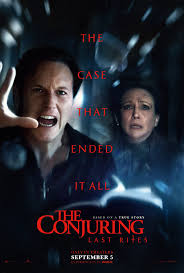The Importance of Conjuring Last Rites in Contemporary Spirituality

Introduction
Conjuring last rites has become a relevant topic in today’s society, reflecting the intersection of spiritual practices and the rituals surrounding death. It encompasses various traditions, beliefs, and customs that are pivotal for individuals seeking closure and peace during times of loss. Understanding the importance of conjuring last rites sheds light on how different cultures honour the deceased and provide solace to grieving families.
The Ritual of Conjuring Last Rites
Typically, last rites are a set of religious or spiritual ceremonies performed for a person who is approaching death or has recently passed. In many cultures, these rites include prayers, blessings, and rituals intended to ensure a smooth passage into the afterlife. For instance, in Christianity, last rites involve the administration of the Sacraments of the Anointing of the Sick, which aims to prepare the soul and body for death.
However, modern interpretations of conjuring last rites may not always conform strictly to traditional religious practices. Various spiritualists, including practitioners of Paganism, Wicca, and other esoteric paths, incorporate their unique rites that align with personal beliefs and cultural backgrounds. This diversity within the ritual underscores the ongoing evolution of how communities respond to mortality.
Contemporary Practices
As society becomes increasingly secular, many individuals look for alternative ways to find meaning during the dying process. Events such as memorials, celebration of life ceremonies, and even themed farewell parties highlight a shift in how we perceive death. Conjuring last rites in these settings can create a personal connection for the living, allowing them to engage with the spiritual aspects of loss while honouring the memory of those who have passed.
Conclusion
The significance of conjuring last rites continues to grow as people seek to navigate the complex emotions surrounding death. By embracing both traditional and modern practices, individuals and families can find comfort and understanding in what is often considered a taboo subject. As society evolves, it is likely that the rituals surrounding death will continue to adapt, fostering a healthier dialogue about mortality and paving the way for more inclusive practices that respect diverse beliefs.









